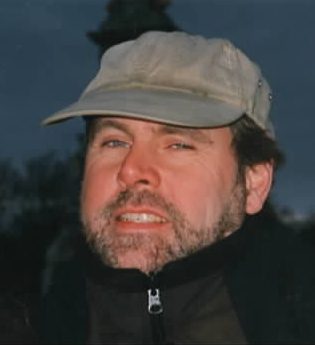
| Title: | Full time professor (accredited) Département de médecine et spécialités médicales |
| Address: | Centre de recherche Hôpital Maisonneuve-Rosemont 5345, Boulevard de l’Assomption Montréal (Québec) H1T 4B3 |
| Room: | Laboratoire Antoine Turmel, Salle 305 |
| Phone: | 514-252-3400, ext. 5878 |
| Email: | christopher.e.rudd@umontreal.ca |
Biography
Professor Rudd’s research focuses on signal transduction pathways in T lymphocytes and how these pathways control immune functions. His lab has discovered the CD4 and CD8-p56lck complexes, the initiators of phosphorylation and activation cascade in T lymphocytes. His most recent interest has been in the pathways that control T cell adhesion and lymphocytes in lymph nodes and the mechanisms by which co-receptors such as CD28 and CTLA-4 control immunity. He identified serine / threonine kinase glycogen synthase kinase (GSK-3) as a central regulator of the expression of programmed cell death-1 (PD-1) on T cells and showed the applicability of small inhibitors molecules of GSK-3 in the negative regulation of PD-1 for the clearance of viral infections. His research helps to uncover the signaling events that control the adaptive immune response and help develop therapeutics for the treatment of infection, autoimmunity and cancer.
Team
- Felix Jules, PhD
- Janna Kruger, PhD
- Catherine Menard, PhD
- Elham Ben Saad
- Alexandra Kazanova
- Patrick Spencer
Themes
- Mechanisms of adaptive immunity of T lymphocytes and its application to the treatment of cancer and infection.
Research topics
- Signal transduction in T lymphocytes
- Adhesion and mechanisms of T cell migration
- Function of co-receptors (CD28, CTLA-4, PD-1) on T lymphocytes
- Immunotherapy in cancer and infection
Publications
- Taylor A, D, Rothstein D and Rudd, C.E. (2018) Molecule inhibition of PD-1 transcription is an effective alternative to antibody blockade in cancer therapy. Cancer Research 78, 706-717.
- Krueger J and Rudd C.E. (2017) Two Strings in One Bow: PD-1 Negatively Regulates via Co-receptor CD28 on T Cells. Immunity 46, :529-531
- Raab, M. Lu Y, K Smith X, Kohler, K., Smith, X., Strebhardt K, Rudd C.E. (2017) LFA-1 activates focal adhesion kinases FAK1/PYK2 to generate LAT-GRB2-SKAP1 complexes that terminate T-cell conjugate formation. Nat. Commun. 8.16001
- Liu, Schneider, H., Recino, A., Richardson C., Goldberg, M.W. and Rudd, C.E. (2015) The immune adaptor SLP-76 binds to SUMO-RANGAP1 at nuclear pore complex filaments to regulate nuclear import of transcription factors in T-cells. Molecular Cell 59, 840-849; PMID: 26321253.
- Taylor, A., Harker, J., Stevenson, P.G., Chanthong, K., Zuniga, E.I., and Rudd, C.E. (2015) Glycogen synthase kinase 3 (GSK-3α/β) regulates PD-1 expression via Tbet transcription for enhanced CD8+ cytolytic T-cell responses. Immunity, 44(2):274-86.
- Huang, Y.H., Zhu, C., Kondo, Y., Anderson, A.C., Gandhi, A., Russell, A., Dougan, S.K., Petersen, B.S., Melum, E., Pertel, T., Clayton, K.L., Raab, M., Chen, Q., Beauchemin, N., Yazaki, P.J., Pyzik, M., Ostrowski, M.A., Glickman, J.N., et al., (2015) CEACAM1 regulates TIM-3-mediated tolerance and exhaustion. Nature 517, 386-390.
- Raab, M., Smith, X., Wang, H., Lu, Y., Wu, Y., Strebhardt, K., Ladbury, J.E. and Rudd, C.E. (2010) T-cell receptor “inside-out” pathway via signaling module SKAP1-RapL regulates T cell motility and interactions in lymph nodes. Immunity 32, 541-56.
- Smith, X., Schneider, H., Kohler, K., Liu, H., Lu, Y., and Rudd, C.E. (2013) The chemokine CXCL12 generates costimulatory signals in T cells to enhance phosphorylation and clustering of the adaptor protein SLP-76. Science (Signal) 6, ra65.
- Rudd, C.E. (2008) The reverse stop-signal model for CTLA4 function. Nat. Rev Immunol 8, 153-160.
- Rudd, C.E. Cell cycle ‘check points’ T cell anergy. (2006) Nat Immunol. 7,1130-2.
- Rudd, C.E. (2006) Disabled receptor signaling and new primary immunodeficiency disorders. N Engl J Med. 354, 1874-7.
- Schneider, H., Downey J., Smith, A., Zinselmeyer, B.H., Rush, C., Brewer, J.M., Wei, B., Hogg, N., Garside, P., Rudd, C.E. (2006) Reversal of the TCR stop signal by CTLA-4. Science 313, 1972-5.
